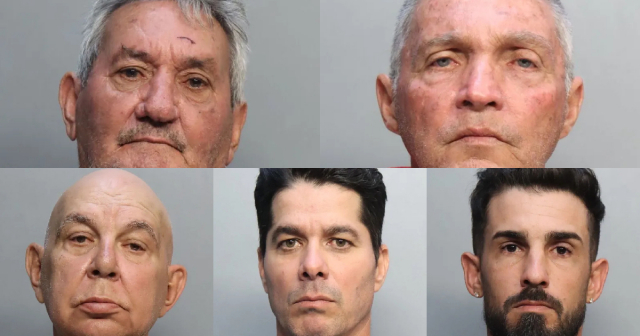The scandal caused by the abuse inflicted on a cat during the International Agroindustrial Food Fair (Fiagrop) has led the Cuban authorities, in a matter of hours, to provide a government response, administratively sanction those allegedly responsible and to dedicate this Sunday an editorial to the animal abuse in it Star News of Cuban Television.
With the video of the embarrassing spectacle in the background, journalist Lazaro Manuel Alonso was in charge of giving visibility to the events that occurred last Friday, when supposed “cowboys” and a clown entertained the Fiagrop public by linking a cat at the Rancho Boyeros Fairgrounds.
At the same time as showing his disapproval, the journalist focused on the discomfort expressed on social networks from the point of view of an institutionality and administration "concerned" about animal welfare, aware of regulatory limitations and willing to advance animal rights through education, legislation and the application of harsh sanctions to offenders.
“Helplessness, anger, shame, disgust... are just some of the feelings and emotions that we have received in an avalanche on social networks,” Alonso stated in his editorial, outraged by the mistreatment “with a singular level of cruelty of a cat.” in “the most important agricultural fair in the country.”
The speed and attention given to this complaint by Cuban animal activists on social networks contrasts with the aggressive rejection that other activists' complaints about human rights violations in Cuba provoke in the official media.
While television and Alonso himself, along with other spokesmen of the dictatorship, have defamed and lied about the latter in the information spaces controlled by the regime, the rapid harmony of official journalists with the unrest and complaints from civil society interested in animal welfare is surprising.
With more than a thousand political prisoners in jails, with hundreds of protesters imprisoned for participating in the historic protests of 11J demanding freedom and change in Cuba, with dozens of them facing heavy prison sentences on sedition charges -when all they did was express rejection of the government and the repressive policy of the dictatorship-, with desperate mothers and destroyed families, the official press controlled by the totalitarian regime has become sensitive to citizens' concerns about animal welfare.
According to López, the Fiagrop case of animal abuse is “the tip of the iceberg of a much larger problem... and it is the insufficient protection that still exists for animals in Cuba.”
The archive is full of complaints about police violence and harassment, arbitrary arrests, beatings, kidnappings, threats, torture, censorship and other practices that Cuban activists point out as violating their civil and political rights, and exponents of state terrorism of the Cuban regime. , but so far no recognition similar to that of the animal welfare problem has been seen on television.
The Cuban regime is willing to recognize that the “cat roundup” is the tip of the iceberg of a larger problem; and it is. His concern, made in a television editorial this Sunday, goes so far as to censor even cockfights “which some justify with supposed expressions of Cubanness, but which in essence are injuries and attacks,” and which are part of the commander's family heritage. Guillermo García Frias and his business conglomerate Flora and fauna.
“The use of horses to pull cars without proper rest, food and hydration”; “the capture of animals on public roads and the zoonosis conditions”; “the captivity to which species, even endemic ones (birds) are subjected, or poaching, or expressions of abuse in zoos”; “or illegal dog fights” were highlighted on Cuban television as part of a lack of animal rights culture.
Receptive to the indignation of the citizens with these expressions of barbarism on the Island, the editorialist proposed the possibility of confronting animal abuse through sanctions that transcend the administrative sphere and are dealt with by criminal law. “The opportunity is now, with the new penal code", indicated Alonso, for whom the fines of thousands of pesos imposed by the competent authorities They seem ineffective measures.
The rejection of animal abuse is not only perceived among "those who give their lives for animals", but even by "their own Miguel Diaz-Canel, who has been emphatic on Twitter,” said the pro-government journalist while projecting a tweet from the ruler.
Praising the clarity of Decree Law 31, and showing a willingness to reform in this area, Alonso concluded his reflection by quoting Mahatma Gandhi: “The greatness of a nation is measured by the way it treats animals.”
Pretending greatness in the Cuba of the totalitarian regime that tramples on the most basic rights of its population, after an alleged sensitivity against animal abuse, reminds us of that other phrase by Leo Tolstoy: “There is no greatness where simplicity, goodness and truth are missing.” .
What do you think?
SEE COMMENTS (1)Filed in:
